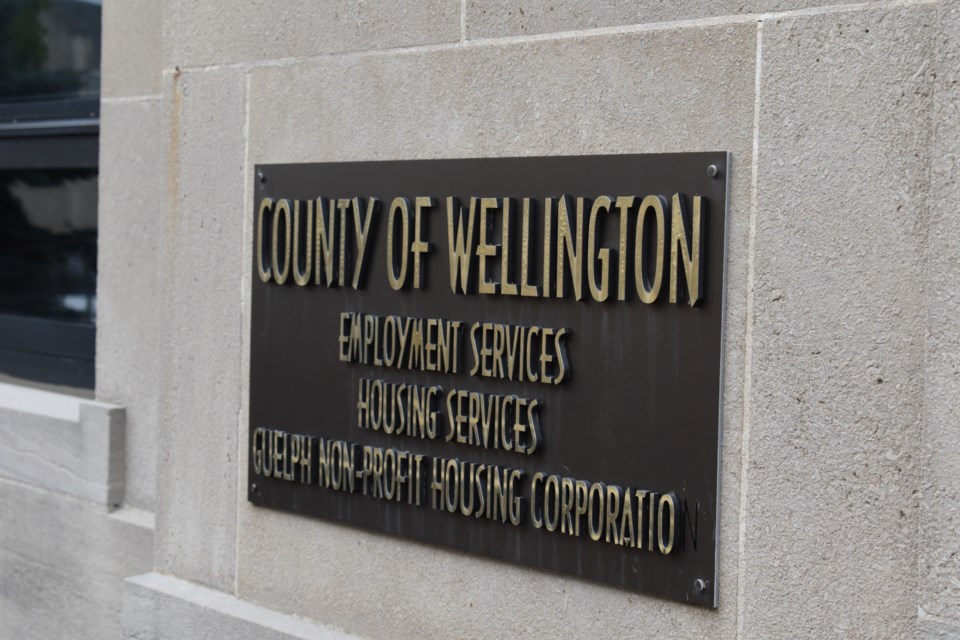It's an existing crisis that's getting worse.
Compounded by the growing cost of living, the demand for social housing in Guelph-Wellington continues to climb well beyond pre-pandemic levels, and is expected to keep climbing throughout 2023.
Income support and wages haven’t been keeping up with the growing cost of living, and “people are finding it harder and harder to make ends meet, and afford a safe place to call home," said Dominica McPherson, director of the Guelph & Wellington Task Force for Poverty Elimination
Rent continues to skyrocket: The average price of a one bedroom apartment in the city was $2,003 in January, up 17.3 per cent over January 2022.
At the same time, she said Guelph and Wellington County are “losing affordable rental market housing at a rate faster than it can be replaced.”
McPherson said there are a number of affordable housing projects being built right now, but they still need capital and operational funding to come to fruition. Even then, it’s not enough.
In 2021, there were 2,838 households waiting for supportive housing, rent-geared-to income (RGI) and affordable rentals – 313 more households than the previous year.
By June of 2022, that number had climbed to 3,398.
The average wait time is between 2.1 and 3.75 years, but can vary significantly depending on certain factors, according to Mark Poste, director of housing with the County of Wellington Housing Services.
A survivor of domestic violence or human trafficking, for instance, is high priority and typically has a shorter wait time, closer to a year or 13 months on average.
For those who aren’t high priority and are waiting chronologically, the wait time is closer to five years or more.
It also depends on the number of properties the applicant selects as a preference. Selecting all eligible properties in the application will shorten the wait period substantially, but those who make fewer selections could be waiting as long as eight years, he said.
Housing retention is a factor as well, as Poste said longer retention contributes to longer wait times. There is hesitancy to move out of a rent controlled unit, because as rent prices continue to climb, you risk not being able to find something as affordable, he said.
In 2018, the retention rate in Guelph was 6.85 years; by the end of the second quarter in 2022, it was sitting at 8.6 years.
It doesn’t look like the demand is going to slow down anytime soon, either. Between July 2021 and June 2022, the Housing Services made 181 housing placements; in the same time period, 560 people started new housing applications.
Lengthy wait times means people who are having a difficult time finding affordable and safe housing are forced to compromise on the quality of housing, and end up with unsuitable options, McPherson said.
“As a result, people are leaving our community because they can't afford to live here,” she said. “And I think on top of that, we're seeing people experiencing homelessness as a result of not being able to access housing.”
It’s a growing crisis, compounded by inflation and the rising cost of living in a way we weren’t seeing before the pandemic.
“We're seeing things get worse,” she said.
To address the long wait times, she said we need “critical investments from all levels of government and affordable housing options, and income support, so that people can meet their basic needs and access to safe and affordable places to call home.”
One of the issues is housing is often viewed as a commodity for investments, “rather than a basic need and human right.”
“We cannot rely on the private market to create the deeply affordable housing options we need,” she said.
The crisis is rooted in policy decisions made by upper levels of government, and the shortage of housing began 30 to 40 years ago when the federal government withdrew investments in social housing and made cuts to social services, she said.
As the years have passed, this continued lack of investment has only made matters worse – and new housing isn’t necessarily the solution.
“Though both the provincial and federal government have taken action to build more housing in recent years, of which projects in our community have benefited from, affordable housing is being lost at a faster rate than it can be replaced,” she said.
Addressing the housing crisis, then, requires policy change and investment in affordable and accessible non-market housing, as well as greater rent control regulations and adequate income support so people can afford housing in the first place.
